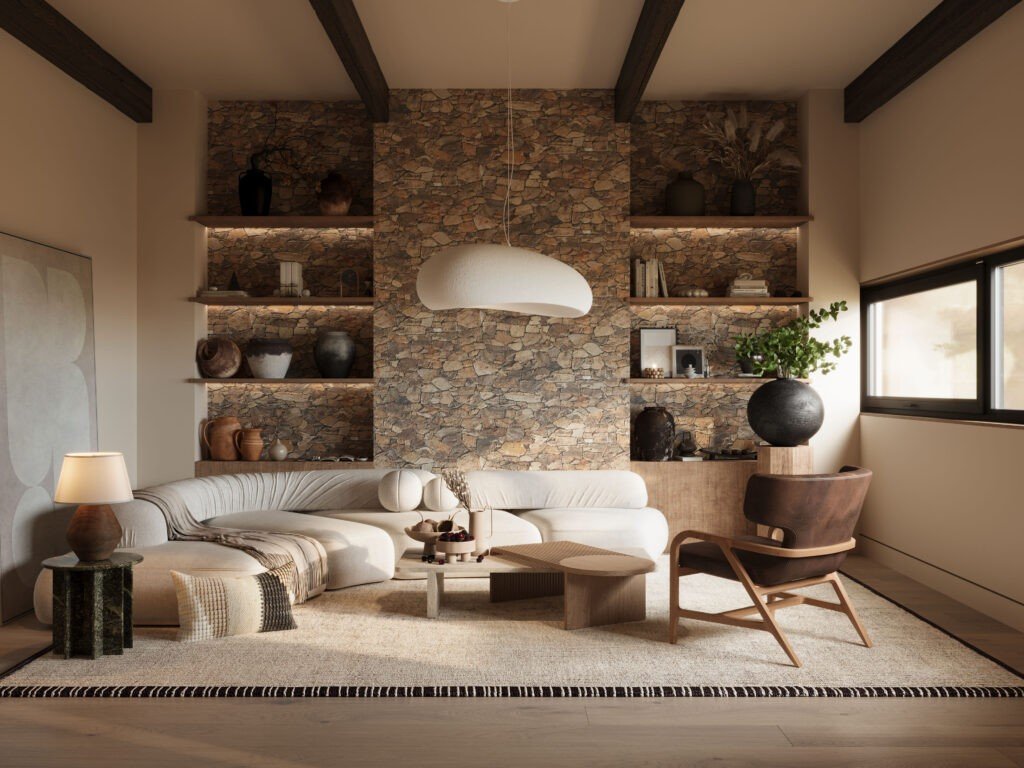In 2025, the minimalist lifestyle continues to gain momentum as more people seek simplicity, clarity, and purpose in their daily lives. Across Tier 1 countries like the United States, Canada, the UK, and Australia, minimalism is evolving beyond just decluttering—it’s becoming a holistic approach to living that promotes mental well-being, financial freedom, and sustainable choices. This blog dives into the top minimalist lifestyle trends shaping modern living and offers practical ways to simplify your life in 2025.
What is Minimalism in 2025?
Minimalism is no longer just about owning fewer things; it’s about intentional living—making mindful choices that reduce stress and maximize value. The focus is shifting toward quality over quantity, sustainability, and digital decluttering, reflecting the modern challenges of fast-paced life and overwhelming consumption.
Key Trends Driving the Minimalist Movement
1. Digital Minimalism: Streamlining Online Life
With digital overload affecting mental health, 2025 sees a rise in digital minimalism. People are cutting down on unnecessary apps, unsubscribing from spam emails, and setting boundaries around screen time to improve focus and reduce anxiety.
2. Sustainable and Ethical Consumption
Minimalism is increasingly intertwined with sustainability. Consumers are prioritizing eco-friendly products, supporting ethical brands, and embracing second-hand shopping to reduce waste and carbon footprints.
3. Capsule Wardrobes for Effortless Style
The trend of capsule wardrobes continues to grow, encouraging individuals to own fewer, versatile clothing items. This approach not only simplifies daily decisions but also saves money and reduces textile waste.

How to Simplify Your Life with Minimalism in 2025
Adopting a minimalist lifestyle can feel overwhelming, but focusing on key areas can make the transition smoother.
Declutter Your Space
Start with your physical environment. Decluttering living spaces reduces stress and increases productivity. The KonMari method and other popular decluttering strategies help people keep only items that spark joy or serve a purpose.
Practice Mindful Consumption
Before making a purchase, ask yourself if the item adds real value to your life. This approach curbs impulse buying and encourages investing in durable, multipurpose products.
Digital Detox and Organization
Schedule regular digital detoxes to disconnect from devices and social media. Use tools like email filters, app limiters, and organized folders to keep your digital life tidy.
Prioritize Experiences Over Possessions
Minimalism in 2025 emphasizes spending on experiences such as travel, learning, and hobbies rather than accumulating material goods. This shift boosts happiness and life satisfaction.
Benefits of Embracing Minimalism in 2025
Living minimally offers a range of advantages that extend beyond a cleaner home:
- Improved Mental Health: Reducing clutter and digital distractions eases anxiety and promotes mindfulness.
- Financial Freedom: Spending less on unnecessary items leads to savings and better money management.
- Sustainability Impact: Minimalism supports eco-conscious living, reducing waste and environmental harm.
- Enhanced Productivity: A simplified environment helps maintain focus and efficiency.
- Greater Life Satisfaction: Prioritizing meaningful experiences fosters happiness and purpose.
Minimalism Meets Technology: Smart Tools for Simplified Living
Technology plays a vital role in supporting minimalist lifestyles in 2025. From apps that track spending habits to platforms that facilitate decluttering by selling or donating items, the digital world offers practical solutions to keep life organized and intentional.
Examples include:
- Budgeting apps like YNAB or Mint to manage finances.
- Digital note-taking and task apps such as Notion or Todoist.
- Platforms like Depop or ThredUp for sustainable fashion resale.
- Meditation apps supporting mindful living.
Challenges and Misconceptions About Minimalism
Minimalism is sometimes misunderstood as living with nothing or extreme deprivation. However, in 2025, it is recognized as a personalized journey towards intentionality and balance, not a strict rulebook. Some challenges people face include emotional attachment to belongings and societal pressures to consume, but the growing community and resources make it easier to overcome these hurdles.
How to Start Your Minimalist Journey Today
- Set Clear Goals: Define what minimalism means for you—whether it’s decluttering, saving money, or reducing stress.
- Take Small Steps: Begin with one area like your wardrobe or digital devices.
- Educate Yourself: Follow minimalist influencers, read books, and join online communities.
- Celebrate Progress: Acknowledge milestones and adjust your approach as needed.
The minimalist lifestyle in 2025 offers a refreshing antidote to modern complexity. By focusing on what truly matters, simplifying possessions, and cultivating mindful habits, you can unlock greater peace, purpose, and sustainability in your daily life. Whether you’re a beginner or deepening your practice, these trends provide valuable insights for anyone looking to embrace simplicity in a busy world.

